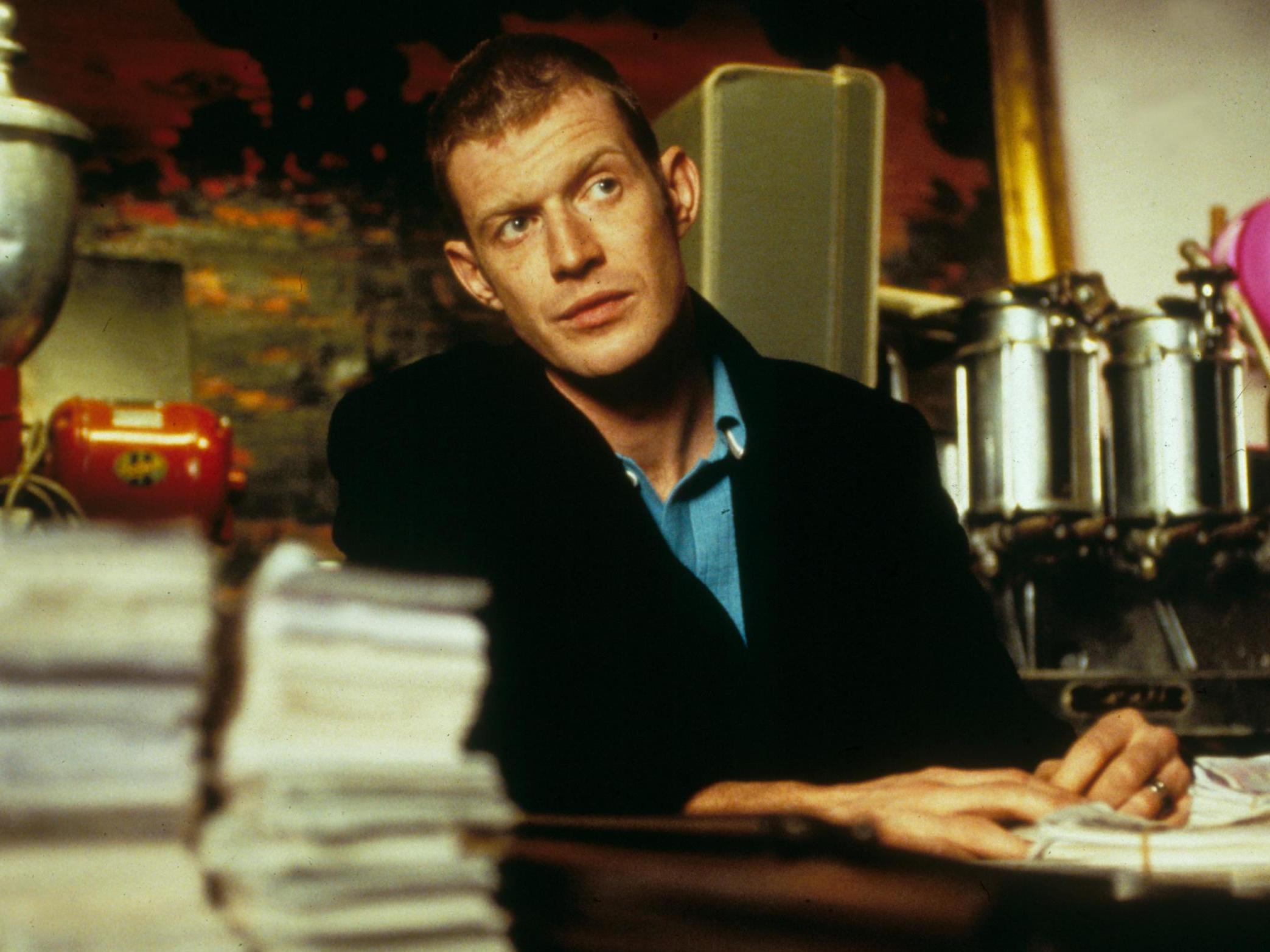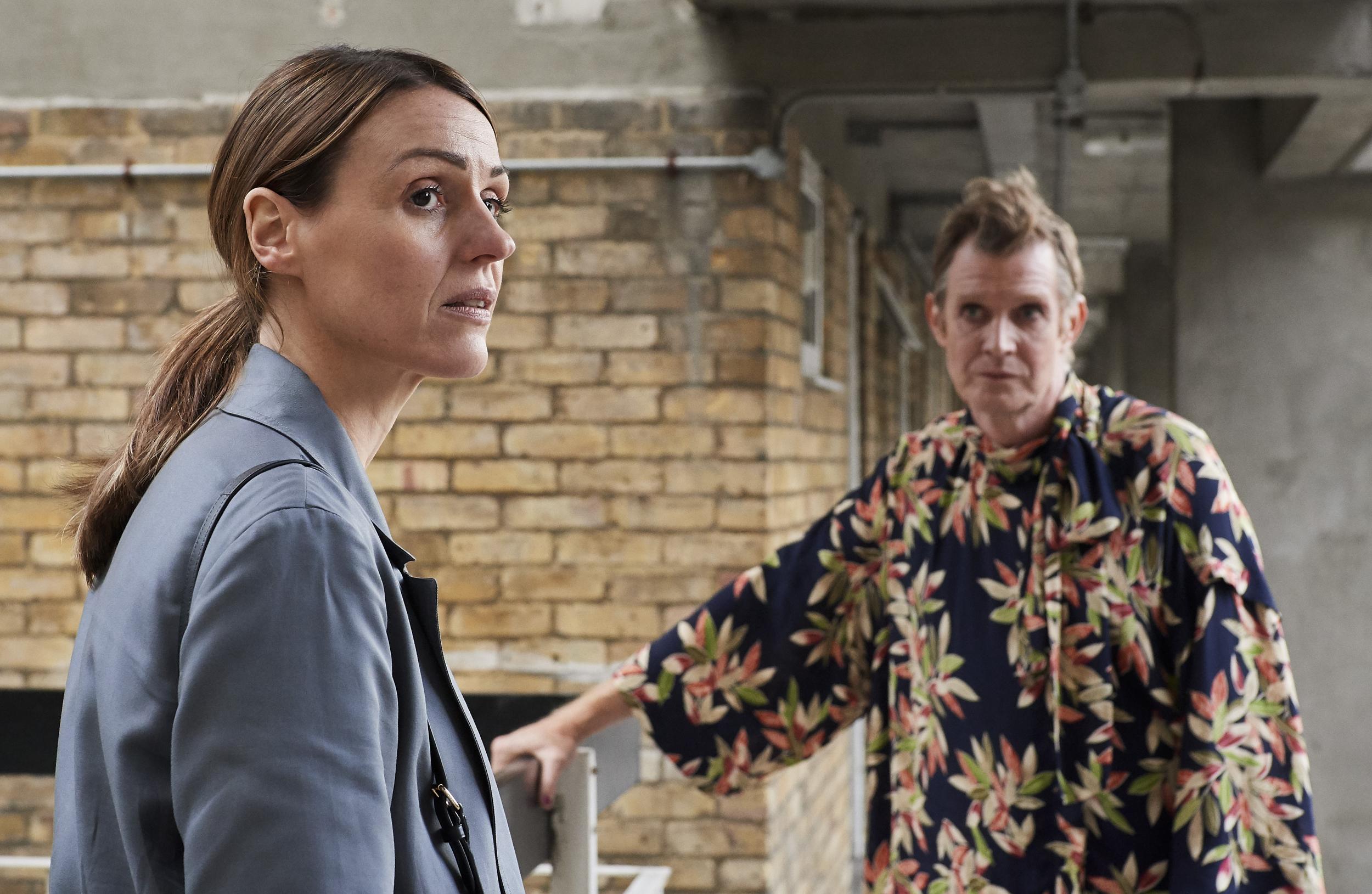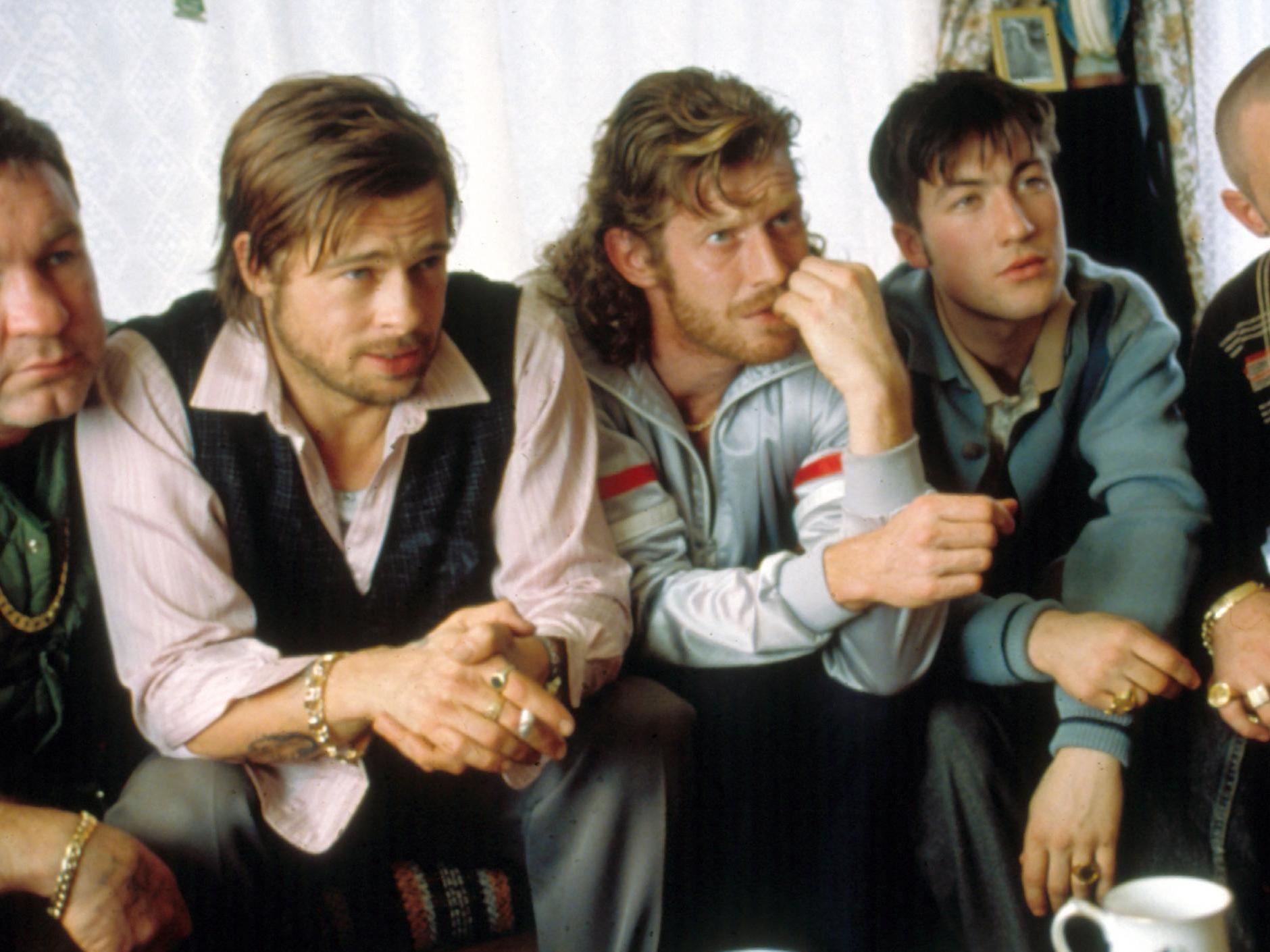Jason Flemyng: ‘Most of the great actors I’ve worked with have addiction or mental health problems’
The ‘Snatch’ and ‘Save Me’ star talks to Chris Harvey about Eighties rave culture, his new prisoner podcast, historic racism and whether there is a link between genius and insanity

Your support helps us to tell the story
From reproductive rights to climate change to Big Tech, The Independent is on the ground when the story is developing. Whether it's investigating the financials of Elon Musk's pro-Trump PAC or producing our latest documentary, 'The A Word', which shines a light on the American women fighting for reproductive rights, we know how important it is to parse out the facts from the messaging.
At such a critical moment in US history, we need reporters on the ground. Your donation allows us to keep sending journalists to speak to both sides of the story.
The Independent is trusted by Americans across the entire political spectrum. And unlike many other quality news outlets, we choose not to lock Americans out of our reporting and analysis with paywalls. We believe quality journalism should be available to everyone, paid for by those who can afford it.
Your support makes all the difference.Guilty as charged,” pleads Jason Flemyng. We’ve been talking about the return of illegal raves, and I’ve suggested that the star of Lock, Stock and Two Smoking Barrels, Snatch and Save Me is exactly the right age – he’s 53 – to have been around when they first sprang up in the UK during the Second Summer of Love in the late 1980s. Does he remember going to them, dropping Es and dancing through the night? “Yes is the answer,” he admits.
It came up because we were talking about what the artist Jeremy Deller said about the new lockdown rave scene. “I think young people always want to be involved in illegal activity,” Deller told The Guardian. “It’s a rite of passage.”
“Yeah, the buzz of doing something illegal,” Flemyng agrees, “you know that’s true, because history proves it, but also because people who don’t need to steal, steal.”
Was it true for him? “Yeah definitely, in my past, and not necessarily in my youth, but my adult life, reflecting on what I’ve done, if I’d been caught, I could have ended up with a prison sentence.”
He doesn’t elaborate. It’s relevant, though, because Flemyng has been visiting prisons to talk to offenders and offer support for three decades, ever since he first toured a play in UK prisons with the Royal Shakespeare Company. And he’s just launched a podcast, More Than My Past, in which he interviews high-profile former prisoners and recovered addicts, from Big Issue founder Lord Bird to Chris Difford, guitarist and songwriter in the Eighties new wave band Squeeze.
Flemyng makes an excellent interviewer, I might add, and the stories are fascinating. The podcast aims to show that it’s possible to escape “that trudging forward direction, which goes from birth to care to prison to death, or to more prison, longer sentences, greater crimes and addiction”.
“To turn that around takes a f*** of a lot of strength,” Flemyng says, adding that growing up poor in a single parent family in Putney, south London, he was lucky to have been focused on what he wanted to do with his life.
He still has a down-to-earth London accent. He’s chatty and upfront; even over the phone, you can hear why he has a reputation as one of acting’s really nice guys. He’s on the line from his home in Brixton, close to the prison he visits most frequently. He was halfway through filming the second series of the Batman origin drama Pennyworth when the pandemic struck and has been at home with his wife, actor Elly Fairman, and their twin boys, Noah and Cassius.
They’ve all had Covid-19, he tells me. “I’ve done my 15 days of isolation – on two of which I was very ill, the rest I was functioning. But since I’ve got better from that, which took a month, I’ve been racing around doing loads of stuff for Critical NHS [a nonprofit organisation that has been providing meals and essential items to NHS frontline staff during the outbreak] – anything,” he adds, “to get me out of the house and away from home-schooling.

Watch Apple TV+ free for 7 days
New subscribers only. £8.99/mo. after free trial. Plan auto-renews until cancelled

Watch Apple TV+ free for 7 days
New subscribers only. £8.99/mo. after free trial. Plan auto-renews until cancelled
“I’ve felt, wrongly or rightly,” he notes, “that I’m riddled with antibodies, and I’m invincible.”

The privations of only being able to “go to the shops once a day and walk the dog” are put into perspective for him, he says, by the knowledge of what Britain’s prisoners are going through at the moment. “No one is allowed to visit them, and they’re locked up for 23 hours a day. I just think of the mental health of those poor guys.” He’s looking forward to “getting back into the nick. I really want to see what’s going on with the lads. I’m going back when the lockdown ends.”
Flemyng has played a lot of varied roles in his career, from Brad Pitt’s father in The Curious Case of Benjamin Button (2008) to the rapacious Alec D’Urberville in Tess of the D’Urbervilles (1998) to Doctor Jekyll and Mr Hyde in The League of Extraordinary Gentleman (2003). He earths the films he appears in with humour and humanity. His cross-dressing bartender Tam in Lennie James’s Sky 1 drama Save Me is a marvel, worldly wise and soulful.
He makes a great villain, too. It’s possible that he is still best remembered as the crook who’s about to drop a pair of antique rifles worth hundreds of thousands of pounds into the Thames from Battersea Bridge at the end of Lock, Stock and Two Smoking Barrels (1998). That early part opened up a career option in crime movies, which he has regularly taken advantage of. “My key to being accepted in prison is because I’ve done a load of crappy gangster flicks,” he laughs. The ones people remember are sometimes surprising, he adds, mentioning Rollin’ with the Nines from 2006, about two south London rappers turned drug dealers.
Don’t those films glorify a life of crime, and especially violence? “It’s an old argument, isn’t it?” he begins. “Which came first?” He talks about the way that the actors in the Don Simpson and Jerry Bruckheimer cop thriller Bad Boys (1995) turned their guns sideways so that the projectile force of their “film guns” – which comes out sideways – didn’t blow into the other actor, “then real gangsters started firing their guns sideways, because they’d seen it in the film”.
“But yes, of course it glorifies it,” he accepts. “It sterilises the violence, so you don’t really feel the consequences for the victim. But it’s an addiction for all of us to watch those films.”

Other addictions – to drugs and alcohol – feature in the podcast. Chris Difford, who wrote the lyrics to Squeeze classics such as “Cool for Cats”, “Up the Junction” and “Pulling Mussels (From the Shell)”, talks about how he couldn’t find the off button to moderate his drinking, so he had to stop altogether. That said, Difford is reluctant to rule out a connection between booze, drugs and creativity. “I’m not going to tell people to give up drugs or alcohol to make them a better songwriter,” he tells Flemyng.
“It’s really interesting,” Flemyng says, “because I would say 75-80 per cent of the great actors that I’ve worked with have had problems with addiction or with mental health issues… What is the cost of brilliance? Does genius come from a place of mental instability? I think there’s a truth to that. I think I would rather be mediocre and sane and be a safe pair of hands but not an Oscar winner, and yet have my whole life in a stable place. There’s an insanity to great performances.”
He draws a clear line between the different reasons people take illegal substances. “Obviously the prisons are rife with drug use, but the casual use of drugs for recreational purposes is a different thing. We’re talking about people whose lives have become such a dirge that they are doing anything they can to escape their existence.”
I want to ask him about another famous prison visitor – Charles Dickens, who on the morning we talk is in the news because a protester has daubed “Dickens Racist” beside the door of the Charles Dickens Museum in the Kent seaside town of Broadstairs. Dickens defended a 19th-century governor of Jamaica, Edward John Eyre, who killed 439 people and burnt down 1,000 homes after a plantation uprising in which 18 British militiamen were killed. It marks him out as racist even more than the antisemitic tropes attached to Fagin in Oliver Twist.
Flemyng, who was in the BBC’s A Christmas Carol last year and has previously appeared in a film adaptation of Great Expectations, says it plays into one of the themes of the podcast. “No one is just one thing... no one could condone [Dickens’s position],” he says. “And obviously, that’s hugely disappointing for anyone who loves Dickens.”

Are some things unforgivable? Is historical racism one of them? “Yeah, I’m afraid it is. It condemns him. You live by what you say, and I don’t think it’s enough to say it was a different time. No more than I think it’s enough to say it was all right to hit your wife because it was the Twenties.”
He picks up the theme that people are not just one thing. “Hitler was vegan and was reduced to tears when a pigeon with a broken wing flew into his garden,” he explains. ”You can have levels of unbelievable cruelty and yet levels of kindness [or in Dickens’s case] levels of unbelievable talent.” People, he reiterates, are multifaceted beings.
“I’ve met really dangerous men who’ve done terrible crimes and need to be punished for those crimes and should be in prison. Yet still within that person, there’s huge compassion, huge regret, huge potential that is unfulfilled.”
The ‘More Than My Past’ podcast is out now
Join our commenting forum
Join thought-provoking conversations, follow other Independent readers and see their replies
Comments